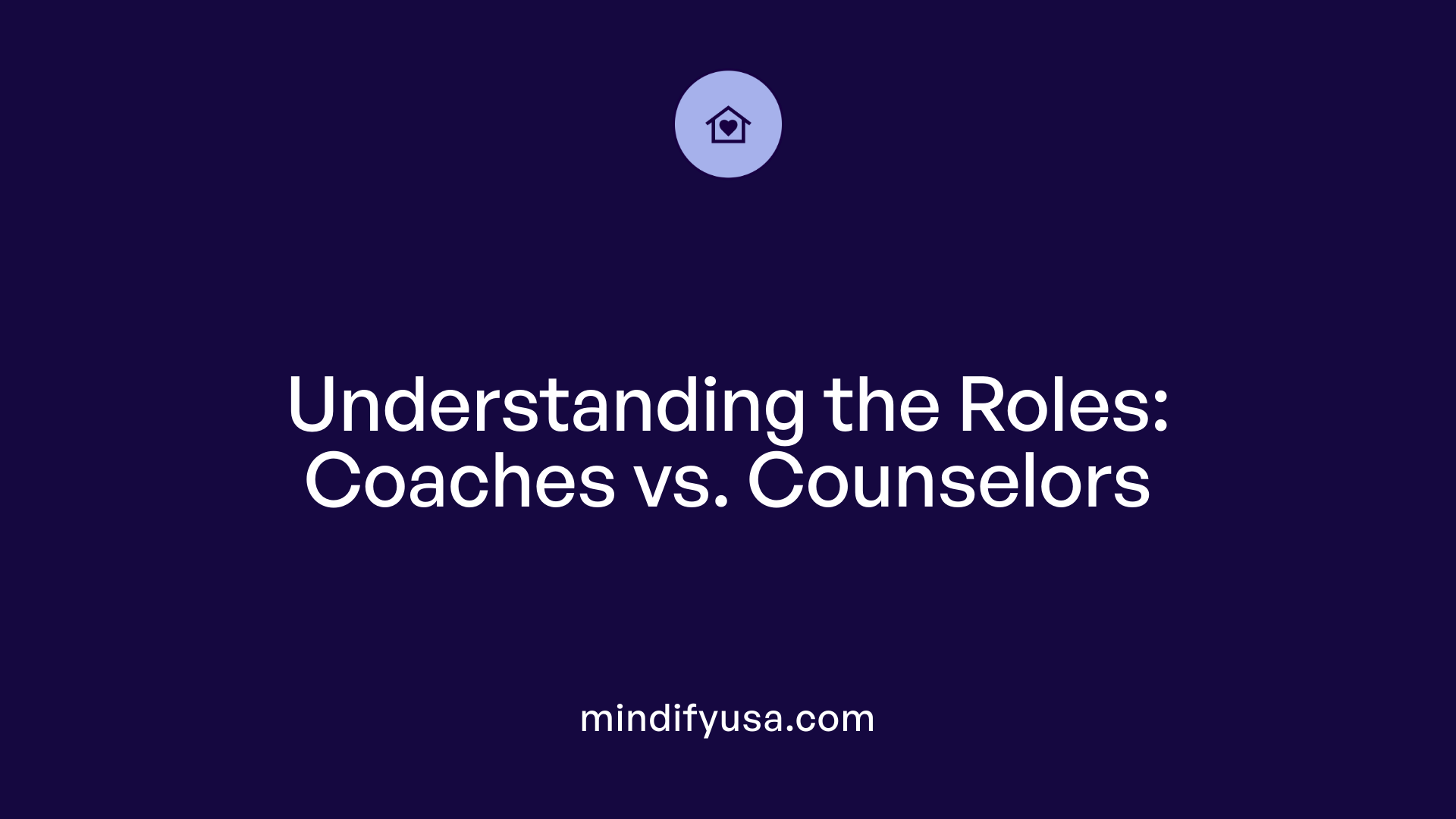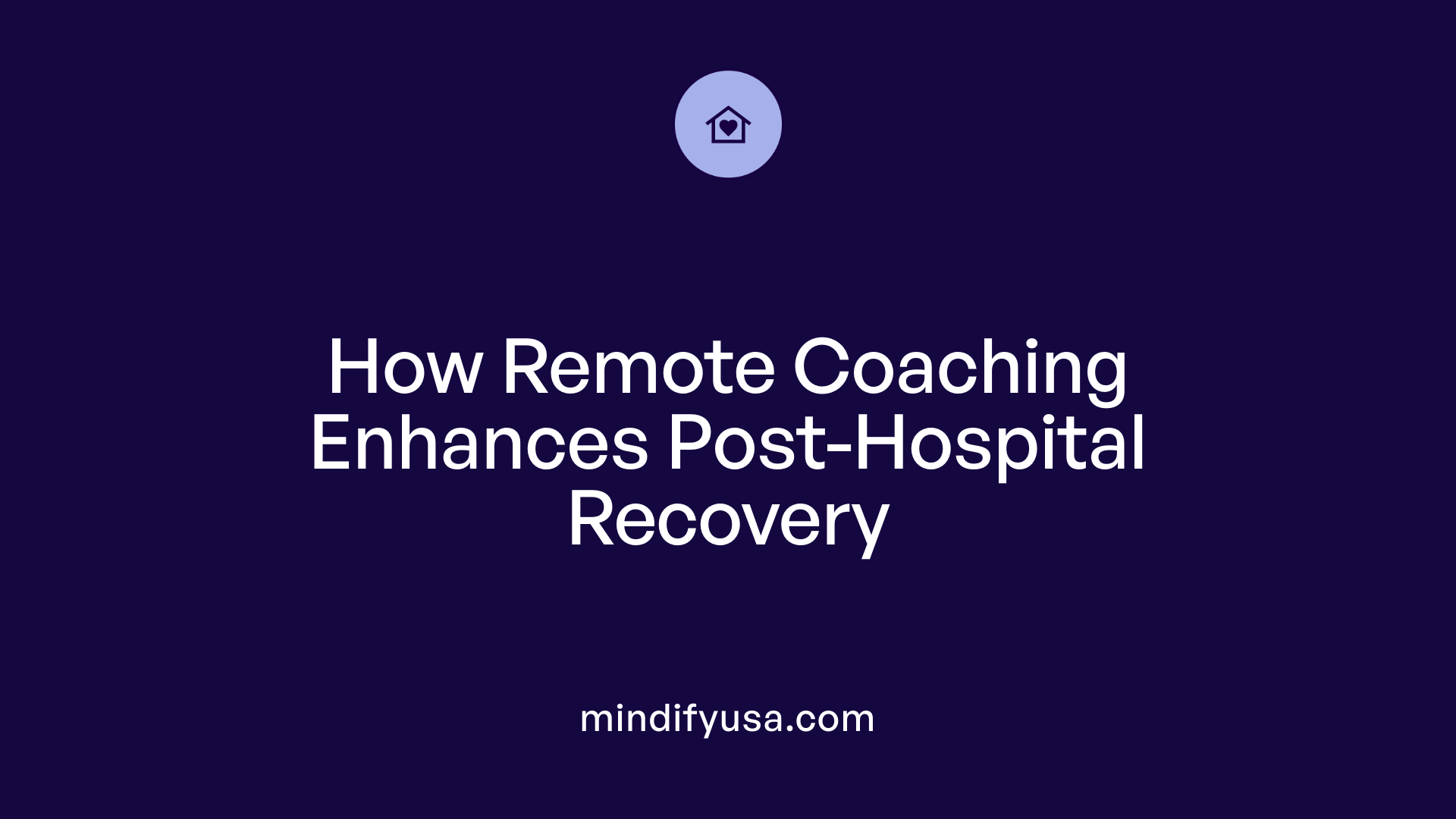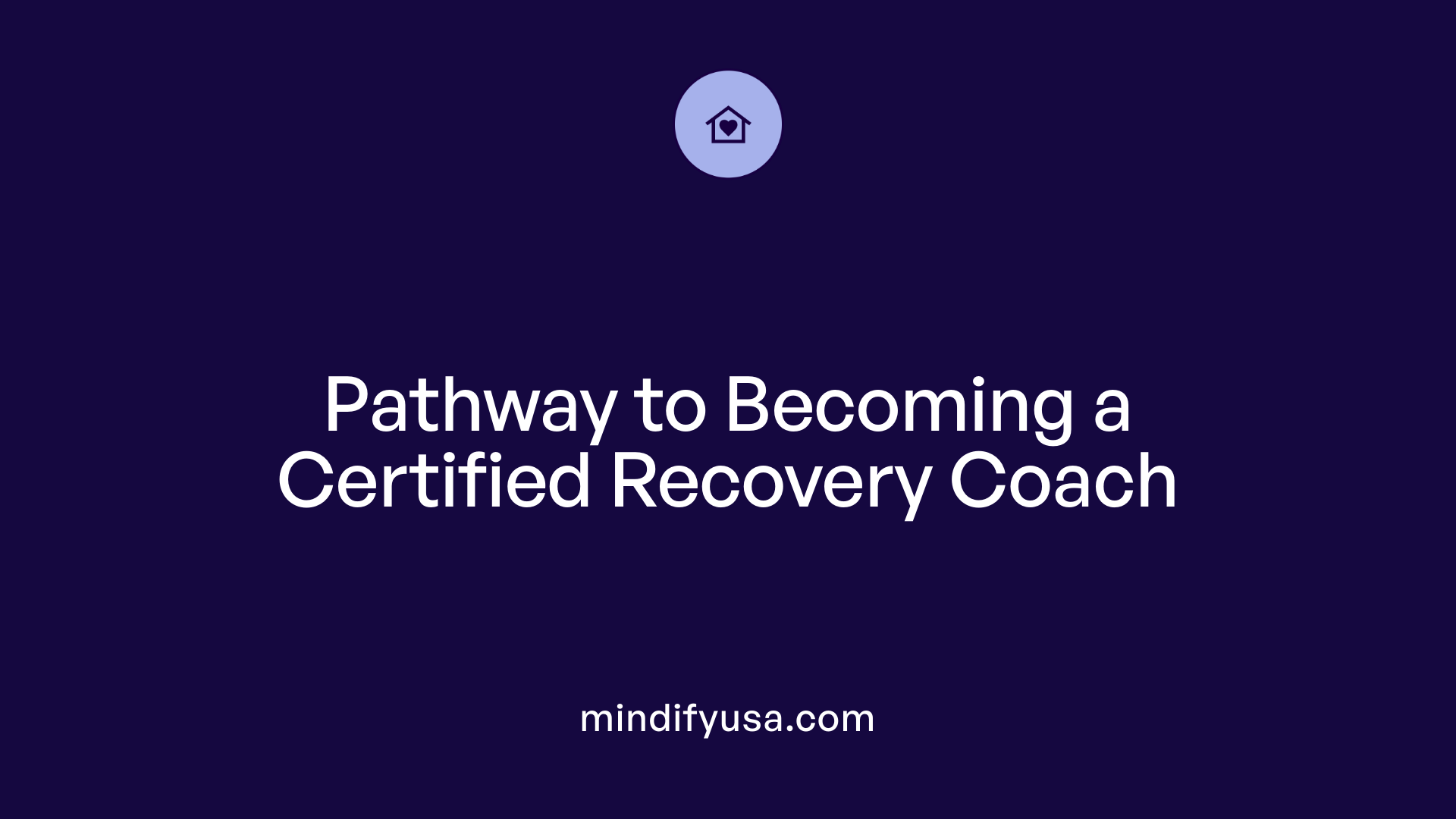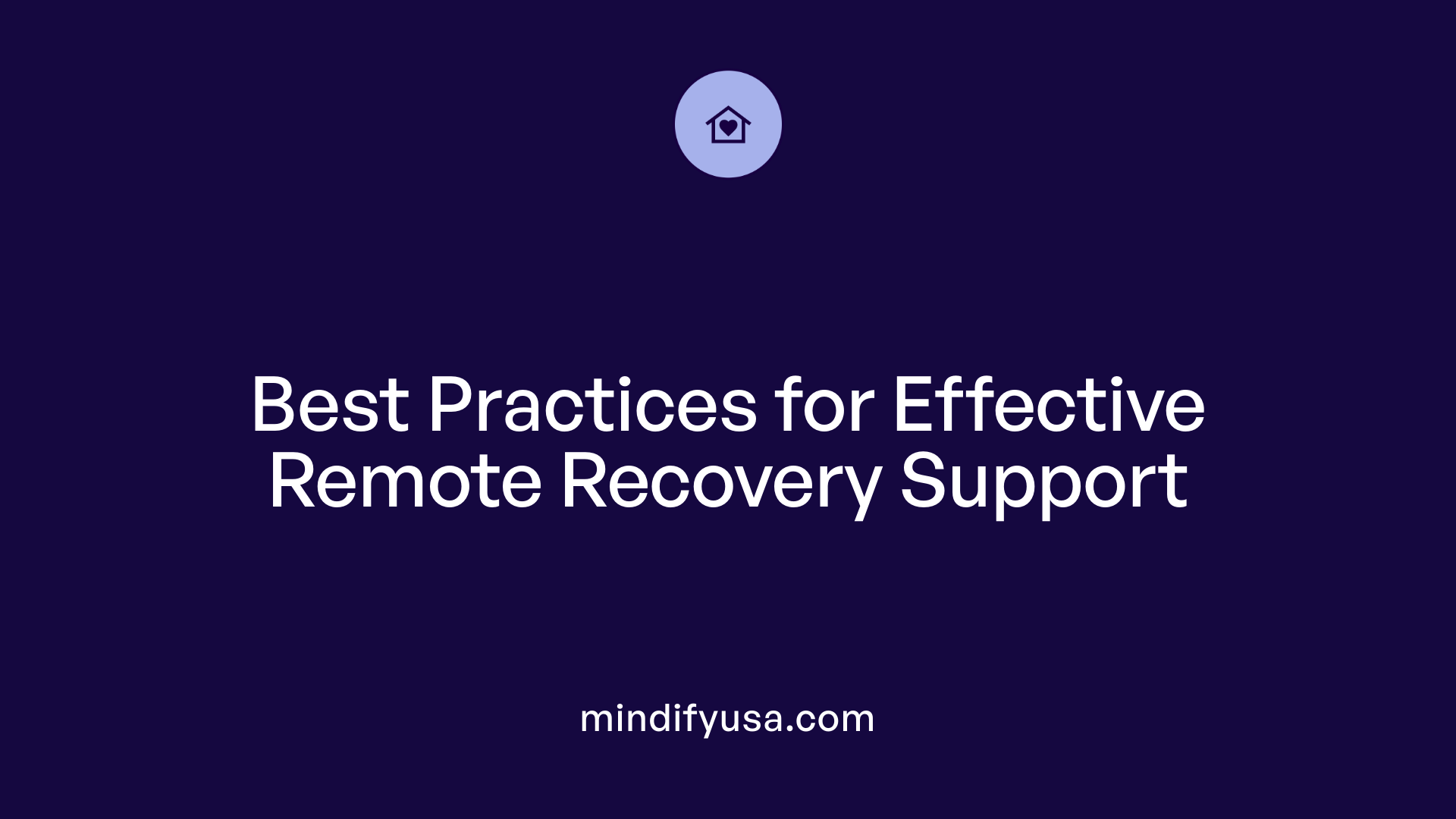Bridging the Gap in Post-Discharge Care with Remote Recovery Coaches
As healthcare systems increasingly focus on reducing readmissions and improving long-term outcomes, remote recovery coaching has gained prominence as an effective strategy for supporting patients after hospitalization. This form of personalized, accessible support addresses critical needs that often go unmet during the vulnerable transition period from hospital to home, especially for individuals recovering from substance use disorders, mental health challenges, or complex medical conditions.
The Integral Role of Recovery Coaches in Post-Hospitalization Support
What is the role of recovery coaches in post-hospitalization recovery?
Recovery coaches are essential partners in helping individuals transition smoothly from hospital to community-based recovery. They provide personalized support that addresses each person's unique needs, focusing on sustaining sobriety and achieving overall wellness.
These coaches offer emotional encouragement through empathetic listening and practical advice, which helps individuals build confidence and develop resilience during challenging times. They work collaboratively with clients to create tailored recovery plans, outlining milestones and strategies to tackle daily hurdles such as securing housing, employment, or managing relationships.
A vital aspect of their support lies in connecting clients to vital healthcare resources. This includes outpatient treatment programs, mental health services, community resources, and social support networks. By bridging gaps in care, recovery coaches reduce barriers and promote continuous engagement with treatment.
Furthermore, recovery coaches act as advocates who prioritize their clients' goals and needs within the recovery process. Their support encourages accountability and fosters a long-term commitment to health and well-being.
Organizations like Hazelden Betty Ford and agencies such as Koplin Consulting emphasize the importance of personal, real-time guidance—whether through in-home visits or live-in support—which has been shown to significantly lower relapse rates, especially during the vulnerable first year of sobriety.
In summary, recovery coaches serve as mentors, advocates, and resource navigators, helping individuals not only stay on track post-discharge but also build the skills and confidence necessary for sustained recovery.
Differentiating Recovery Coaches from Clinical Counselors

What is the difference between a recovery coach and a recovery counselor?
Recovery coaches and recovery counselors both play vital roles in supporting individuals on their path to sobriety, but their approaches and qualifications set them apart.
Recovery coaches are trained professionals who assist clients in developing personalized plans for recovery, focus on motivation, and help them navigate community resources. They provide practical support in managing daily challenges, building support networks, and setting life goals. Importantly, coaches generally do not have the authority to diagnose or treat mental health or psychological conditions, and their work is rooted in behavioral support and lifestyle encouragement.
Recovery counselors, on the other hand, are licensed clinicians with formal training in mental health, addiction treatment, and often co-occurring disorders. They are equipped to diagnose mental health issues, develop treatment plans, and deliver evidence-based therapies. Their role involves addressing the psychological and emotional aspects of addiction, often within clinical settings.
While recovery coaches focus on long-term lifestyle adjustments and real-time support, recovery counselors work on deeper psychological healing through structured therapy. Many individuals benefit from a combination of both, leveraging the motivational support of coaches and the specialized treatment of clinicians.
In summary, the primary difference lies in scope and credentials: recovery coaches provide non-clinical, practical guidance, while recovery counselors deliver clinical treatment and mental health support. Both roles are essential in a comprehensive recovery journey, complementing each other to improve outcomes.
Remote Recovery Coaching and Its Impact on Health Outcomes

What benefits and impacts of remote recovery coaching are observed on health outcomes for post-hospital patients?
Remote recovery coaching has proven to be a valuable tool in improving health outcomes for individuals transitioning from hospital to community care. This approach offers continuous, personalized support that enhances treatment engagement and adherence by providing behavioral counseling, education, and emotional encouragement remotely.
One significant benefit is the improvement in clinical status, as patients receive real-time guidance on managing their conditions. For example, individuals coping with substance use disorders or chronic illnesses can monitor their symptoms closely and respond promptly to emerging issues.
Digital applications such as smartphone apps and telehealth platforms are central to remote coaching. They enable real-time monitoring of health indicators, facilitate early detection of complications, and foster seamless communication between patients and healthcare professionals. This immediacy helps prevent escalation of health problems, ultimately reducing the need for emergency services and hospital readmissions.
Research shows that remote coaching can lead to noticeable reductions in hospital readmission rates, especially within the critical first 30 days post-discharge. It also promotes better management of chronic conditions, decreases emergency visits, and lowers overall healthcare costs.
Peer recovery coaches, integrated with digital tools, motivate patients to stay committed to their recovery journey. They provide not only emotional support but also practical assistance, such as connecting patients to community resources and supporting behavioral change.
In summary, remote recovery coaching empowers patients during vulnerable periods, supports ongoing treatment, and facilitates healthier, more stable lives after hospital stays. The combined use of behavioral counseling and digital technology paves the way for more effective recovery processes and improved health outcomes.
Qualifications and Certification Pathways for Recovery Coaches

What certification or qualifications are required to become a recovery coach?
Becoming a recovery coach involves a combination of specialized training, credentialing, and experience. Most programs require candidates to complete a recognized training course, such as the 60-hour 'Professional Recovery Coach' program offered by institutions like Bunker Hill Community College. This training covers essential topics like neuroscience, ethics, and motivational interviewing to prepare coaches for real-world support.
A minimum educational requirement is usually a high school diploma or GED, and candidates must be at least 18 years old to qualify. After completing the necessary training, aspiring coaches can pursue certification through reputable organizations, such as the International Association of Professional Recovery Coaches (IAPRC). The CRC (Certified Recovery Coach) credential is a common certification, obtained by passing exams like the IC&RC Peer Recovery Exam.
Experience in addiction recovery and a good understanding of ethical standards are important prerequisites. Ongoing education and training are also necessary to maintain certification, often involving recertification every two years. Additionally, some areas or organizations may require state-specific certifications or licensing, so it's important for candidates to check local requirements.
This structured pathway ensures recovery coaches are well-prepared to support individuals in their journey to sobriety and well-being.
Implementing and Funding Remote Recovery Coaching Programs

What are best practices for implementing remote recovery coaching tailored to post-hospital recovery?
Effective remote recovery coaching requires a structured approach that emphasizes personalization and integration. Developing customized coaching plans centers on each individual's unique recovery goals, challenges, and life circumstances. This tailored approach helps address specific barriers, coping strategies, and lifestyle adjustments needed for sustained sobriety.
Involving peer recovery coaches—people with personal experience in overcoming addiction—adds empathy and cultural relevance to the support. These coaches can communicate via telehealth platforms, phone calls, or messaging apps, offering motivation and practical advice in real time.
Proper supervision by licensed clinicians, mental health professionals, or trained nurses ensures that coaching maintains ethical standards and clinical oversight. Clear boundaries and ethical responsibilities should be established from the outset.
Seamless integration across different healthcare settings enhances continuity of care. Connecting hospital discharge programs, primary care providers, emergency departments, and community organizations ensures ongoing support as individuals transition through various recovery stages.
Leveraging technology is critical for consistent engagement. Utilizing secure telehealth systems, reminder apps, and online resource portals facilitates communication and enhances accountability.
Staff training on tele-coaching etiquette, confidentiality, and crisis management equips coaches to handle diverse situations effectively. Furthermore, exploring reimbursement pathways like Medicaid and insurance billing supports program sustainability.
In summary, adopting a comprehensive, personalized, and technologically supported approach—coupled with skilled supervision and system integration—creates a solid foundation for successful remote recovery coaching, especially tailored for individuals recovering post-hospitalization.
Unlocking the Future of Post-Discharge Care with Remote Support
Remote recovery coaching is transforming the landscape of post-hospital rehabilitation by delivering accessible, personalized, and continuous support that addresses gaps in traditional care. With evolving certification standards, increasing evidence of effectiveness, and expanding funding opportunities, remote coaching services are positioned to play a pivotal role in improving health outcomes, reducing readmissions, and empowering individuals to achieve sustainable recovery. As healthcare providers and communities adopt best practices and integrate these services into comprehensive care plans, the potential to enhance post-discharge success stories grows exponentially, heralding a new era of patient-centered care and recovery.
References
- Find a Sober Coach | Hazelden Betty Ford
- Substance Use Disorder In-Home Treatment & Recovery Services ...
- How Peer Coaches Help Clients Navigate Life After Treatment
- Expanding Peer Recovery Coach Services to Improve Patient ...
- Recovery Coaches
- Peer & Recovery Coaching - Riverside Community Care
- Recovery Coach Program Implementation Across an Integrated ...
- Roles of a Recovery Coach — Why You Need One






































































































